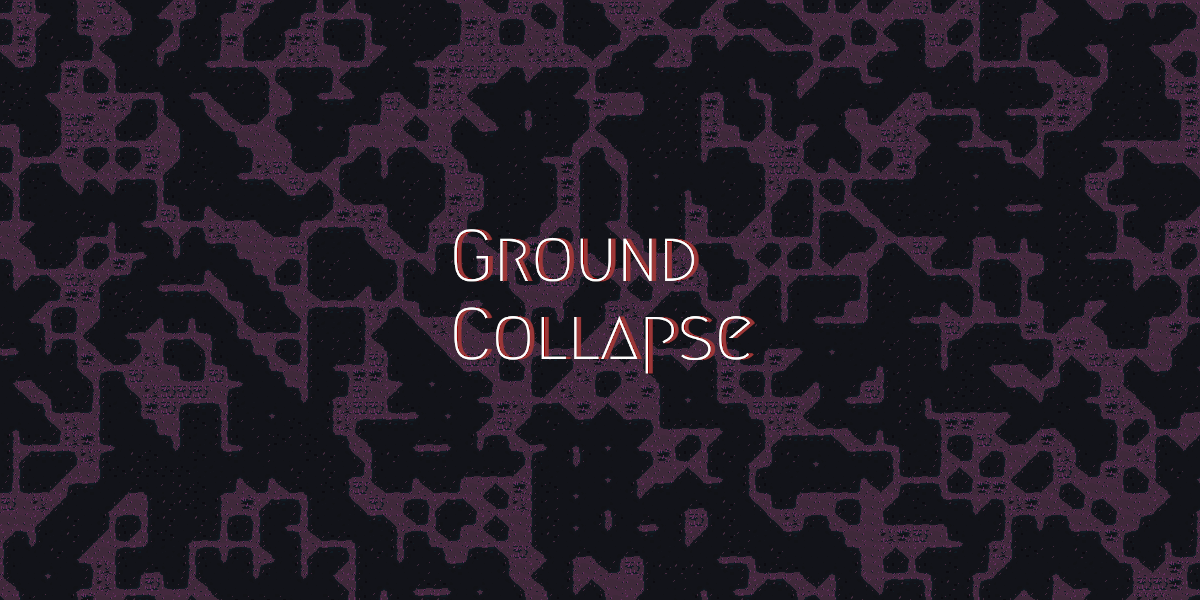an npc codes
GroundCollapse

Summary
A library, a tool, and a demo for creating infinite generative, tiled, 2D terrain (or levels), using constraint solving (clingo and Answer Set Programming), inspired by Wave Function Collapse. Learn more on the project website.
Research Topics
Level Generation | Design Tools | Mixed-Initiative Content Creation | PCG | Answer Set Programming | Wave Function Collapse
Contributors
Special thanks: Isaac Karth, Adam M. Smith, Mark J. Nelson
Description
Dreamlike, the landscape stretches forever in every direction. But stray too far, look back, and it's not how you remember. You can never return to what came before.
GroundCollapse is a library, a tool, and a demo for creating infinite generative, tiled, 2D terrain (or levels). It's open-source, with code available on GitLab.
It uses constraint solving (clingo and Answer Set Programming), inspired by Wave Function Collapse, to ensure that every generated tile will seamlessly fit in with its surroundings.
In a built-in, highly-configurable demo, you can explore a dreamlike landscape where, if you stray too far from a place, you will return to find it completely changed.
The underlying library, written in Python, provides a highly flexible framework for building generative terrain, with extensible constraints allowing for many possible styles and rules.
Integrate it with any game engine or art tool that can interface with a Python library (or run it as an external program), and you could visualize or save the resulting tiles in any number of ways.
The possibilities are endless with GroundCollapse.